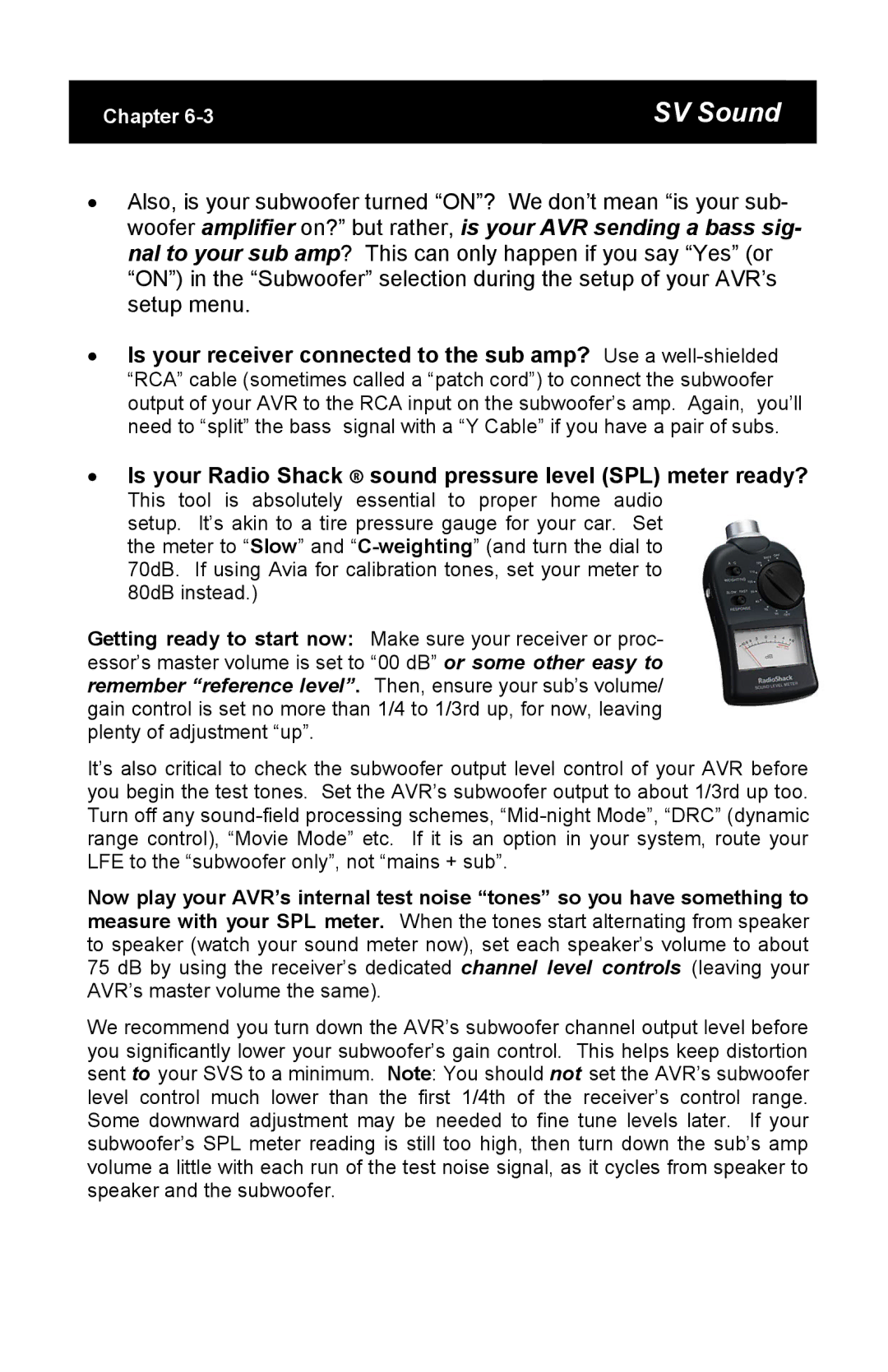
Chapter | SV Sound |
|
|
∙Also, is your subwoofer turned “ON”? We don’t mean “is your sub- woofer amplifier on?” but rather, is your AVR sending a bass sig- nal to your sub amp? This can only happen if you say “Yes” (or “ON”) in the “Subwoofer” selection during the setup of your AVR’s setup menu.
∙Is your receiver connected to the sub amp? Use a
“RCA” cable (sometimes called a “patch cord”) to connect the subwoofer output of your AVR to the RCA input on the subwoofer’s amp. Again, you’ll need to “split” the bass signal with a “Y Cable” if you have a pair of subs.
∙Is your Radio Shack ® sound pressure level (SPL) meter ready?
This tool is absolutely essential to proper home audio setup. It’s akin to a tire pressure gauge for your car. Set the meter to “Slow” and
70dB. If using Avia for calibration tones, set your meter to 80dB instead.)
Getting ready to start now: Make sure your receiver or proc- essor’s master volume is set to “00 dB” or some other easy to remember “reference level”. Then, ensure your sub’s volume/ gain control is set no more than 1/4 to 1/3rd up, for now, leaving plenty of adjustment “up”.
It’s also critical to check the subwoofer output level control of your AVR before you begin the test tones. Set the AVR’s subwoofer output to about 1/3rd up too. Turn off any
Now play your AVR’s internal test noise “tones” so you have something to measure with your SPL meter. When the tones start alternating from speaker to speaker (watch your sound meter now), set each speaker’s volume to about 75 dB by using the receiver’s dedicated channel level controls (leaving your AVR’s master volume the same).
We recommend you turn down the AVR’s subwoofer channel output level before you significantly lower your subwoofer’s gain control. This helps keep distortion sent to your SVS to a minimum. Note: You should not set the AVR’s subwoofer level control much lower than the first 1/4th of the receiver’s control range. Some downward adjustment may be needed to fine tune levels later. If your subwoofer’s SPL meter reading is still too high, then turn down the sub’s amp volume a little with each run of the test noise signal, as it cycles from speaker to speaker and the subwoofer.
